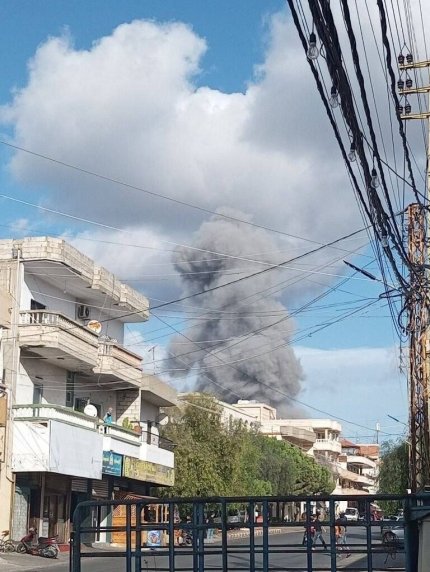On September 19, the Israel Defense Forces (IDF) bombed the facilities of the terrorist group "Hezbollah" in southern Lebanon.
Points of attention
- Israel Defense Forces conducted airstrikes on Hezbollah facilities in southern Lebanon to eliminate terrorist potential and infrastructure.
- Hezbollah's use of civilians as human shields has heightened tensions and worsened the situation in southern Lebanon.
- The IDF is actively engaged in operations to secure the northern border with Lebanon and protect Israeli residents.
- Recent incidents involving the hacking and detonation of Hezbollah fighters' pagers point to escalating tensions between Israel and the terrorist organization.
- Chief of the General Staff Herzl Halevi approved a comprehensive defense and offensive plan in the 'northern direction' to ensure a high price for Hezbollah's actions.
Israel attacked Hezbollah facilities in Lebanon
The IDF said that the Israeli army is striking Hezbollah targets in Lebanon in order to "destroy Hezbollah's terrorist potential and infrastructure."
The terrorist organization "Hezbollah" has turned the south of Lebanon into a war zone. For decades, Hezbollah armed civilian homes, dug tunnels under them, and used civilians as human shields.

The agency added that the IDF is conducting operations to ensure security in northern Israel, allowing residents to return to their homes, as well as to achieve all other military objectives.
Videos of the consequences of Israeli airstrikes on militants in Lebanon appear online.
Also, Israeli F-16 planes fly over the capital of Lebanon, Beirut.
Operation Pager against Hezbollah fighters in Lebanon
On September 17, hundreds of Hezbollah fighters in Beirut and other cities were injured when their pagers, which they used to communicate, exploded. Lebanon believes the pagers were hacked and remotely detonated by Israel. 12 people died, including members of the Hezbollah group. It is also known about more than 2,700 wounded.
Citing a high-ranking informant in the Lebanese security agencies, Reuters reported that Israel's Mossad intelligence service planted a small amount of explosives in 5,000 Taiwanese pagers ordered by the Lebanese group Hezbollah a few months before the explosions.
On September 18, a series of explosions rang out again in Lebanon. Detonated wireless communication devices — portable radios and walkie-talkies of the Hezbollah group.
At a meeting of the IDF, Chief of the General Staff Herzl Halevi approved a defense and offensive plan in the "northern direction" from Israel, where Lebanon is located in particular. Halevi noted that "every time we work on a certain stage, the next two stages are already ready, on each of them the price for Hezbollah must be high."




